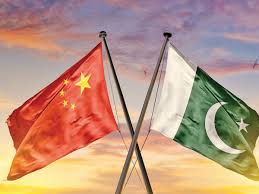Pakistan, China signs MoUs for $ 10 billion Chinese investment

Islamabad: Pakistan and China have signed multiple Memoranda of Understanding (MoUs), amounting to US $10 billion Chinese investment spread across four key export-focused sectors in Pakistan.
Caretaker Commerce Minister Gohar Ejaz told journalists that joint ventures (JVs) will be established in textiles, agriculture, food, and car spare parts manufacturing.
Formally signed by the private sectors of both nations, these MoUs signify a substantial commitment to bolstering economic growth in Pakistan.
In a bid to enhance exports to China, Pakistan is gearing up to send its first shipment of fresh chillies from Karachi, responding to China’s annual chilli import expenditure of US $10 billion. The plan includes exporting chillies in three forms: fresh, paste, and powder.
A protocol has been established for exporting halal meat to China, with shipments of boiled meat expected to commence soon.
Minister Gohar Ejaz, after a recent visit to China, revealed that the Chinese government has agreed to provide preferential access to Pakistani agricultural products.
The specifics of this access, including reduced duties under the free trade agreement, are being formulated in consultation with stakeholders.
The China Chamber of Commerce for Import and Export of Textiles (CCCT) has already expressed support for increasing textile imports from Pakistan.
The commerce ministry aims to shift 10 percent of CCCT’s imports, contributing to a rise in overall textile exports to China.
Gohar Ejaz disclosed plans to visit China on January 15 for subsequent discussions with Chinese investors.
These investors are scheduled to reciprocate the visit in February to deepen engagement with local partners and finalize investment plans in special economic zones.
The proposed joint ventures indicate comprehensive Chinese investment in textile, food, agriculture, and automobile parts sectors, aiming to boost exports not only to China but also to other nations.
These investors may leverage preferential market access under the Generalized System of Preferences Plus scheme to the European market, offering exporters a significant opportunity for duty-free access to European markets.
Gohar Ejaz further revealed the signing of a protocol with a Chinese investor for peanut cultivation across 10,000 acres of the Cholistan desert, exclusively for export purposes.





